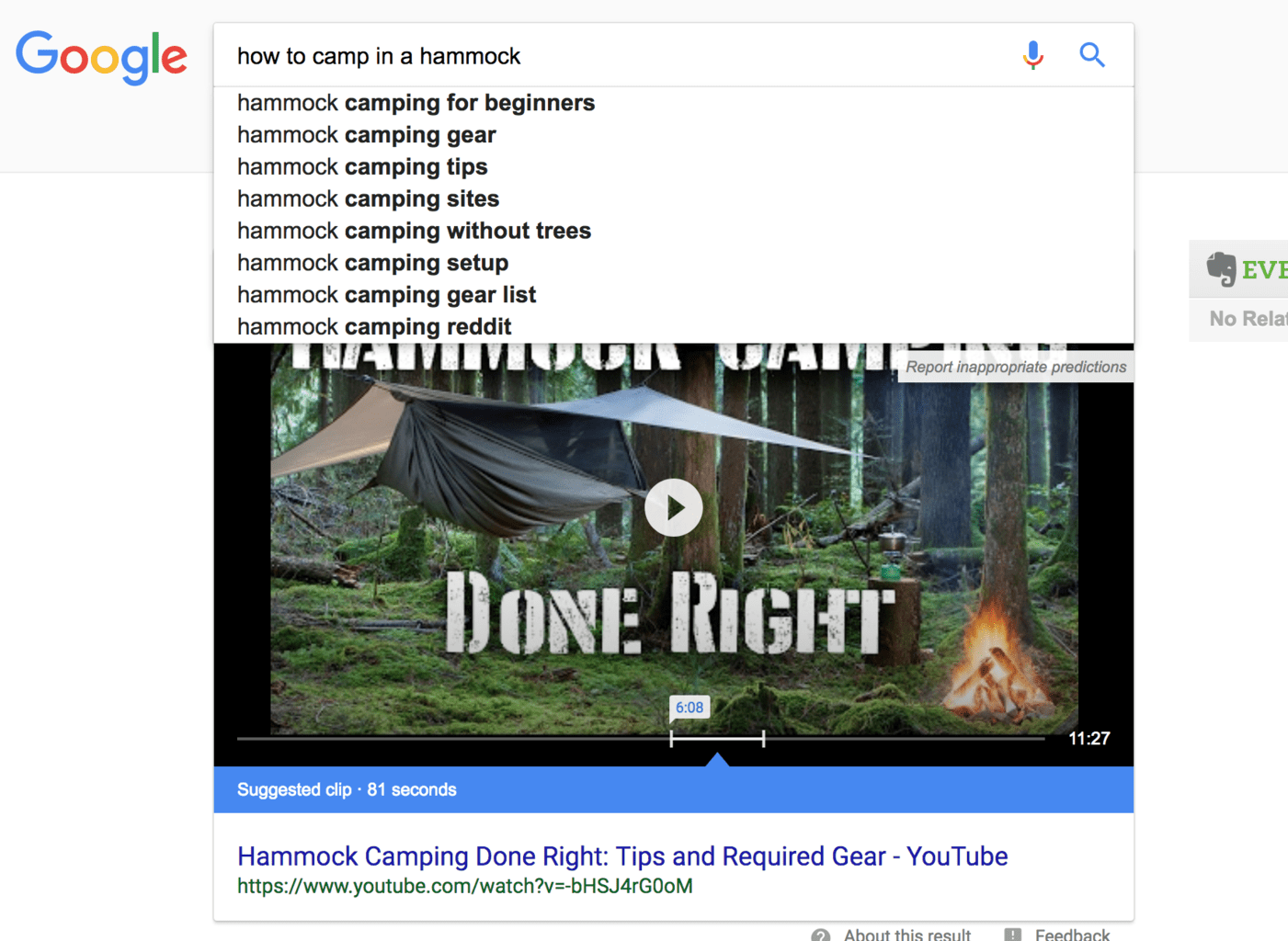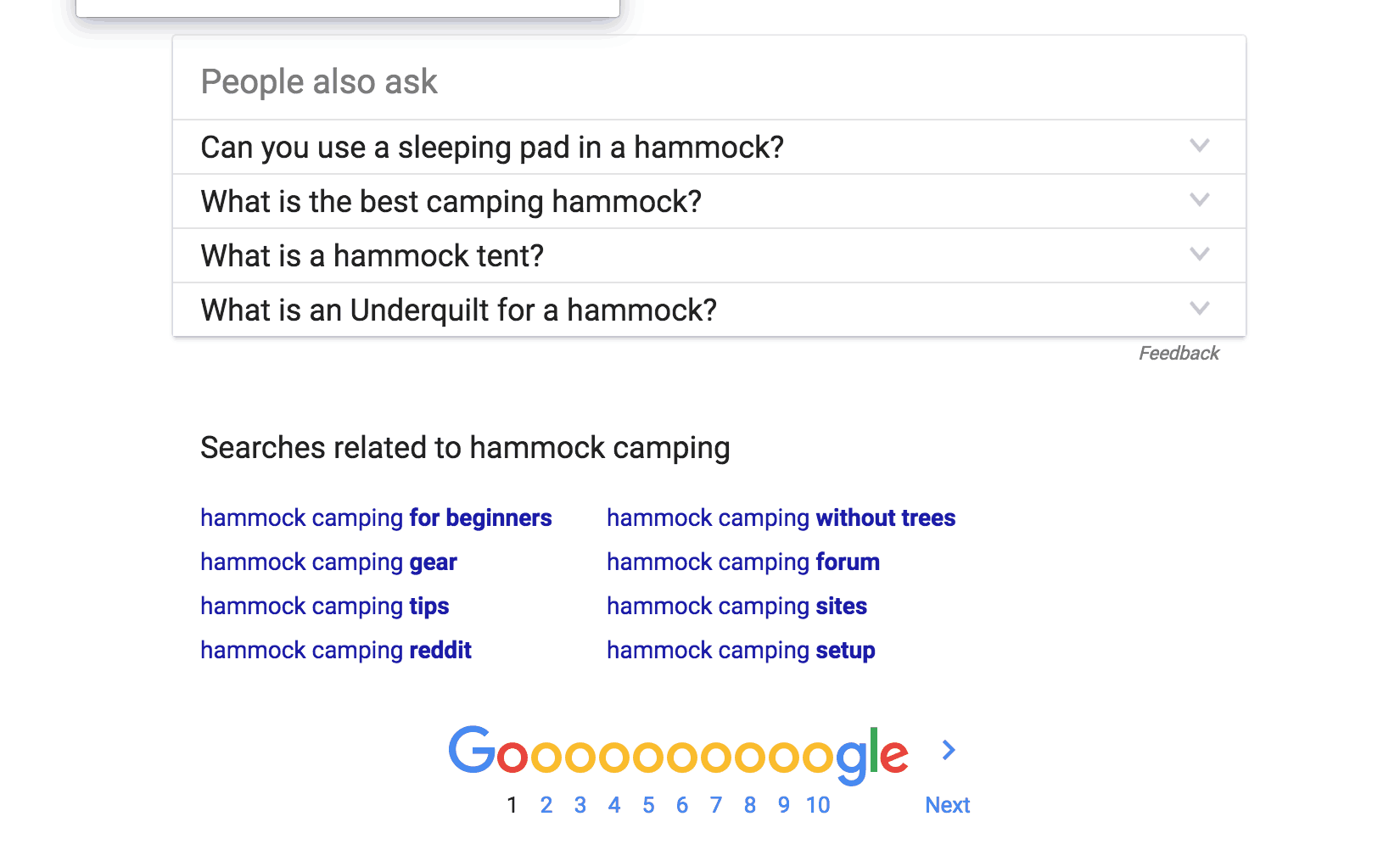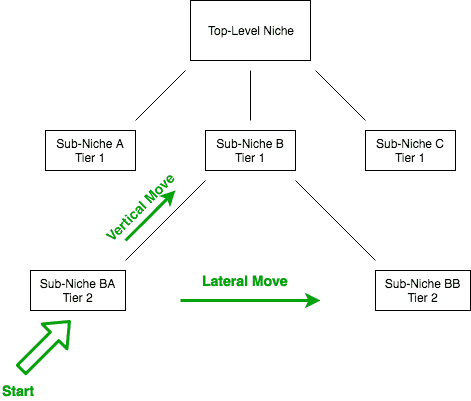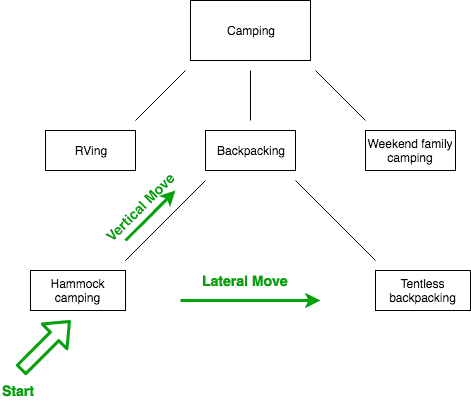Picking a good niche is the single most important thing you can do if you want to earn affiliate income.
Fortunately, picking a good niche isn’t very hard to do. You can find dozens of ideas by creating a list of things you are interested in and performing research to see how much great content there is on each subject. Anything you are interested in that doesn’t have a lot of high-quality content could be a good niche.
People make a big deal over this step because a good niche will provide ample opportunities for generating traffic, helping people, and earning income. A bad one will leave you with a bunch of time sunk into an idea but struggling to earn pennies.
So the stakes are high, but coming out on top isn’t hard to achieve.
This post will go into detail about what a niche is and how you can pick a niche worth pursuing.
What is a niche?
When used in terms of business or marketing, niche means a subset of the overall population that are all interested in a particular subject.
According to Google, the definition for niche is:
denoting or relating to products, services, or interests that appeal to a small, specialized section of the population.
The reason you need a clearly defined niche has to do with your ability to connect and help people. By appealing to “a small, specialized section of the population”, you are able to reach people on an individual level, be more influential, and offer more useful content, products, and services.
The more specialized you get, the more likely you will be able to connect with any one individual in that niche and make a positive difference in their lives.

Once again, this is true in any business – not just affiliate marketing.
What makes a niche good for online business and affiliate marketing?
As I explained in the introduction to this 7-chapter guide to earning affiliate income, the simplest way to think of business is the trading of different forms of value.
The core of every legitimate and successful business is necessarily providing value. If you cannot provide value in some form, people will not give you value (money) in return.
Your niche is of vital importance because it is a decision regarding what value you will be offering to people. It is a decision on what interest or problem you are going to serve.
Your niche is your business.
While getting super specific will increase the odds of connecting with people, you don’t want to box yourself into a niche and not leave room to grow.
The ideal niche will allow you to create extremely focused content, build an audience, and then expand from there into bigger or related niches.
This site is a great example of that in action. When I built Online Selling Experiment, nearly 100% of the content focused on selling on Amazon.
Selling on Amazon is still my primary niche.
But I also knew that there was plenty of room to expand and help more people within the bigger online selling niche. You can see that in action now through my Shopify experiment and even this post.
With that example in mind, here are my three criteria that make something a great niche:
- It focuses on a problem or interest.
- It is specific enough to gain attention.
- You are either experienced in the topic or interested in learning about it.
Let’s talk more about each one.
1. It focuses on a problem or interest.
The important thing here is shifting the focus from businesses and products to problems and interests.
By building a business that seeks to solve people’s problems and share information about things that they are genuinely interested in, you will be able to build both a brand and a community.
If you know anything about business, then you know that these are two of the most valuable things you can have. Especially when it comes to building a business that lasts.
Google rankings can come and go very easily. A group of people passionate about a specific topic and eager to learn more is much more valuable in the long run.
Think about that camping hammock website I mentioned in the intro post to this series. Even if they had built out the site with a bunch of reviews of individual hammocks, they likely would never have had any lasting engagement with their visitors.
That site would be at the complete mercy of Google, relying on them to direct traffic to the reviews and then hoping they could get the click to Amazon on the first visit. People wouldn’t be back for more.
If that same person would have built a website dedicated to hammock camping (an interest) rather than camping hammocks (a product), they probably would have had a lot more success. They could have created much more diverse content that appealed to people beyond just their decision on what to buy.
This would have also allowed them to build a community of people interested in hammock camping, allowing them to promote a broader range of products as well (things that are useful for camping in general instead of just camping hammocks).
2. It is specific enough to gain attention.
When starting, you want to target a group of people with an interest that is underserved.
Targeting an underserved interest makes gaining initial attention much easier. People will be drawn to your content when they see the titles pop up in their social media, and they’ll be more likely to share it with their friends who also share that interest.
Keep in mind, underserved doesn’t mean there aren’t any other people or blogs addressing that niche. There could even be a lot if the content you can create is better or unique because of your knowledge, experience, or willingness to work.
You don’t want to box yourself into a small niche with low-income potential though.
The only time an extremely small niche is acceptable is when there is obvious room for expansion in the future. When considering room for expansion, you want to think of two types of future moves: lateral and vertical.
A vertical move is when you expand into a bigger niche that contains your previous niche.
Niches are like Russian nesting dolls in the sense that they come in all sizes and you’ll find niche within niche within niche.

If a niche you want to target seems too crowded to get initial traction, a great strategy is to target a more specific subset of that niche at the beginning. Once you establish yourself within that community, you can then start to expand into the broader topic.
Your existing fans and followers – who by definition are also part of the bigger niche – will then be extremely useful in getting the new content spread to the wider audience.
For example – if you wanted to eventually target the entire camping and backpacking niches, starting with hammock camping and expanding into the other two would be a great strategy.
A lateral move is when you move into a niche that is related to your current niche and also part of the same niche one order higher. This is best described with a simple diagram:
If you find that diagram confusing, here it is again using a specific niche (I stuck with hammock camping):
Another reason that it’s important to think about these things ahead of time is that it will be a huge factor in your name choice. The wrong name can greatly limit your ability to expand.
3. You are either experienced in the topic or interested in learning about it.
Some people may argue that this isn’t important, but I think that it is – perhaps critically so.
Part of this just comes down to your own enjoyment.
If you took the time to brainstorm a list of things you know a lot about, things you have a unique perspective on, and things you’re interested in learning about, I imagine you would come up with dozens of potential niche ideas.
Every single one of those ideas will be more fulfilling and more enjoyable to write about than a random idea that you choose just because you think it can make you money.
That enjoyment will be especially important in the beginning, because it can take a while for the traffic and money to start flowing. Being interested in the subject will help you through the first year or so when the business is much more of a grind.
The other side to this is that your interest and enjoyment will show through in your writing and ultimately lead to better content.
People don’t want impersonal guides that are boring to read. They want to learn from someone who can share their unique perspective and help them look at things in new ways.
Even just wanting to learn about the subject is enough, and you don’t have to be an expert to help people.
Some people even prefer to learn from other beginners, so you can be completely honest that you are learning along the way. This gives people more insight regarding what their own journey will be like and can be very valuable in community building.
Verifying Niche Potential
Once you come up with some ideas, you need to choose which ones have the most overall potential.
Keyword research tools are frequently recommended for this purpose, but I have found that they are largely inaccurate. They can be useful as a gauge, but I wouldn’t discard an otherwise attractive idea just because a keyword research tool isn’t showing a large amount of traffic.
A lot of guides out there will claim to teach you the perfect way to do this, but I’ve found that common sense is generally the best approach.
When trying to judge a niche idea, I recommend looking at a wide variety of indicators to get a picture of how good the idea is. Things like:
- Are there other websites dedicated to the idea that you could do better than? How many shares do they get? How many visible fans do they have (social media, etc…)
- Are there forums dedicated to the topic? Are there many active participants?
- Do you know people who are interested in the topic?
- Is the subject trending up or down? What does google trends suggest about the interest in the topic? Make sure to look at the long-term (over 10+ years).
- What do keyword research tools say about the potential search traffic?
- Is this a popular subject on social media?
- How many great content ideas can you come up with?
- Are there high-value products related to the niche that you can promote as an affiliate? Check Amazon, affiliate programs like ClickBank and Commission Junction, and individual businesses with products designed for the niche.
Researching all of the above will start to give you a picture of the overall interest people have in the subject.
Remember to pay attention to the overall quality of the content when doing your research.
If you find a ton of high-quality content that you aren’t confident you can beat, you may need to choose a different niche or get more specific. An abundance of high-quality content usually means you are looking at a fairly big niche, so there’s a good chance there is some sub-niche for you to target if you really liked the idea.
Sometimes you’ll find that niches are worth targeting but aren’t enough to dedicate an entire website to. When this is the case, you target them with articles or even sections of your site.
The content brainstorming I mentioned in the list above is worth doing. If you can come up with a bunch of questions that people will have and ideas for great content to answer those questions, that’s an indicator that you are looking at a good niche.
The best keyword and question research technique that I have ever found is just using suggested search phrases that Google offers as you type in the search bar.

This list of potential searches is based on the most frequent searches people make after starting with what you have typed in so far. Once you have a keyword idea, you can just go through and add each letter of the alphabet to see what it suggests.
You can also experiment with adding “how to” or other phrases plus your keyword.
As you do this, also pay attention to the questions Google suggests that “people also ask” and the “searches related to [your keyword]” section at the bottom of the page.

Here are suggested searches if you just type in hammock camping in the search bar…

After you make note of all the good ideas, simply click on one of the suggested searches and repeat the whole process.
You should be able to come up with at least 30-50 post ideas with just a little bit of research.
If you can’t, you don’t have to automatically throw the idea out. You may need to expand the overall subject of your site though.
An Even Better Way To Think About Your Niche
Now that you have the guidelines for finding and verifying a good niche, I’d like to share a slightly different way of thinking about your future niche.
Earlier we defined a niche as “a subset of the overall population that are all interested in a particular subject.”
Google’s definition was similar, and so are all the other definitions you’ll find if you look up what niche means in terms of business and marketing.
In doing research for this post, I stumbled on the ecological definition of niche and think it is very useful for framing your perspective of your future business.
According to ThoughtCo,
The term niche, when used in the science of ecological biology, is used to define an organism’s role in an ecosystem. Not only does its niche include the environment that a given organism lives in, but it also includes the organism’s “job” in that environment. A niche may also encompass what the organism eats, how it interacts with other living (biotic) elements, and also how it interacts with the nonliving (abiotic) aspects of the environment, as well.
You can easily translate this for business:
The term niche, when used in the study of business, is used to define a business’s role in a market. Not only does its niche include the environment that a given business operates in, but it also includes the business’s “job” in that environment. A niche may also encompass how the business is monetized, how it interacts with consumers, and also how it interacts with other businesses and influencers within the environment, as well.
This definition helps broaden your perspective and consider things you might not think about if you just used the standard niche marketing definitions.
I especially like thinking about your business’s job in its environment.
While your business’s job for you may be to make you money, its job within its environment is to provide value in some way. Figure out what that is, how you’ll deliver it, and who needs it, and you’ll be well on your way to a successful business.
Bonus: How to Name Your Business
Once you choose your niche, you’ll need to pick a name.
Most people get really tripped up on this step. Don’t overthink it too much.
All you really need to do is make sure you don’t pick a bad name. While the extra value that “the perfect name” adds to a business is extremely small, the value that a bad name can take away is significant.
The difference between a good name and an average name really isn’t that much in the long run. People learn to make associations with a name based on what the brand stands for. If you stop to think about the businesses you interact with, you’ll realize that many names aren’t all that special.
Just don’t let your name choice get in your way. Here are three things that will help you avoid a bad name:
- Keep the name short.
- If your niche leaves room to expand in the future, don’t choose a name that won’t make sense if start publishing broader content.
- Don’t try to be overly clever or cutesy.
Your name will ideally be available as a .com as well.
What’s Next?
Spend some time thinking about this step. The next thing you’ll need to do is create your website, and you want to make sure you have a good niche and a good name before starting that step.
In the next post in this series, I’ll show you how to build a website for cheap (~$35) that looks great and is easy to use and maintain. You can go back and check out the intro to the affiliate marketing series here.
I will not be updating my subscribers when new posts in this series go live. If you would like to find out as soon as I publish each one, click here




Starting an affiliate site is easy but getting traffic on it is extremely difficult these days. I am struggling with traffic on my. Please share some tips on increasing it.
Generally speaking, the best advice for new affiliate sites is to keep publishing new, valuable content as often as possible and for as long as possible. If you want more detailed advice, our recommendation is to work with one of the following businesses (they offer top-tier programs about building niche sites):
1. Income School
2. Making Sense of Cents